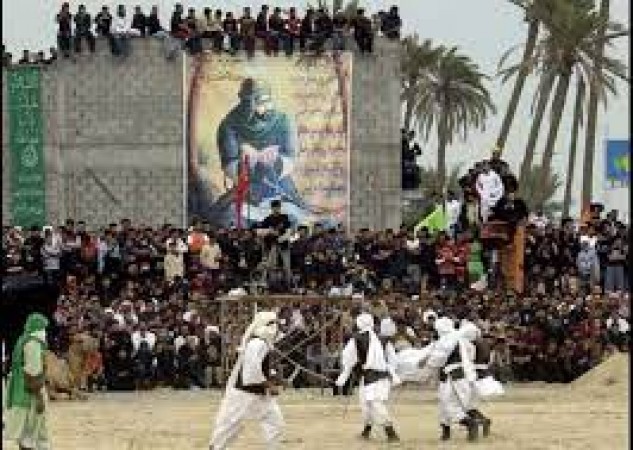
In Islam, Ramadan is considered the most sacred month, known for its purity, piety, and devotion. However, following Ramadan, the month of Muharram holds great importance. Muharram is the first month of the Islamic lunar calendar, and it will be observed on July 17th this year. Today, we will delve into the significance of Muharram and the events that transpired during the Battle of Karbala.
What is Muharram?
The Islamic calendar, also known as the Hijri calendar, begins with the month of Muharram. This month is remembered for the sacrifices made by the devout followers of Allah. Muharram commemorates the martyrdom of Imam Hussain, the grandson of Prophet Muhammad, and is observed with mourning. The Battle of Karbala, which took place during this month, is a significant historical event that we will explore further.
Why is Muharram Celebrated?
For Muslims, Muharram is a month of immense significance. It is a time to remember and honor sacrifices and selflessness. Muharram is observed 20 days after Eid al-Adha. The martyrdom of Imam Hussain on the 10th day of Muharram is a pivotal event, and Muslims commemorate this day by remembering Hussain and observing mourning rituals. Imam Hussain was the younger grandson of Prophet Muhammad, and his martyrdom is honored by carrying out processions known as Tazia and by mourning his death.
The Battle of Karbala
The Battle of Karbala occurred around 1400 years ago and marks a tragic chapter in Islamic history. The Islamic faith began in Medina, and not far from there, a ruler named Muawiya reigned. After Muawiya's death, his son Yazid ascended the throne. Yazid was a tyrannical ruler who sought to establish his own version of religion and demanded allegiance from the people, declaring himself as the Caliph of Islam. Yazid knew that Imam Hussain, the grandson of Prophet Muhammad, had a significant following. He attempted to compel Hussain to endorse him as the Caliph. However, when Imam Hussain refused, Yazid resorted to cruelty against Hussain and his followers.
The Battle
The confrontation between Yazid's forces and Imam Hussain's followers occurred on the 10th day of Muharram. Yazid's army was vast, while Hussain had only 72 companions with him. Despite the overwhelming odds, Imam Hussain and his loyal followers stood firm. Hussain urged his companions to leave, knowing that Yazid would not spare them, but none deserted him. This act of solidarity and bravery underscores the courage and steadfastness of Hussain and his companions.
What Happened in the Battle?
On the 10th day of Muharram, Yazid's army attacked Imam Hussain and his companions. They were surrounded, and Yazid's forces mercilessly slaughtered everyone in Hussain's camp. Among those killed were Imam Hussain, his 18-year-old son Ali Akbar, his 6-month-old son Ali Asghar, and his 7-year-old nephew Qasim. The martyrdom of Imam Hussain and his followers is mourned on this day, known as Ashura. Muslims around the world remember the sacrifices made by Imam Hussain, his family, and his companions, reflecting on their bravery and the profound impact of their martyrdom.
Gareth Southgate Steps Down After England's Euro 2024 Defeat
Sri Lankan Minister Tharaka Balasuriya Arrives in Delhi for BIMSTEC Foreign Ministers' Retreat
Karnataka Cabinet to Discuss Renaming Ramanagara District to 'Bengaluru South'